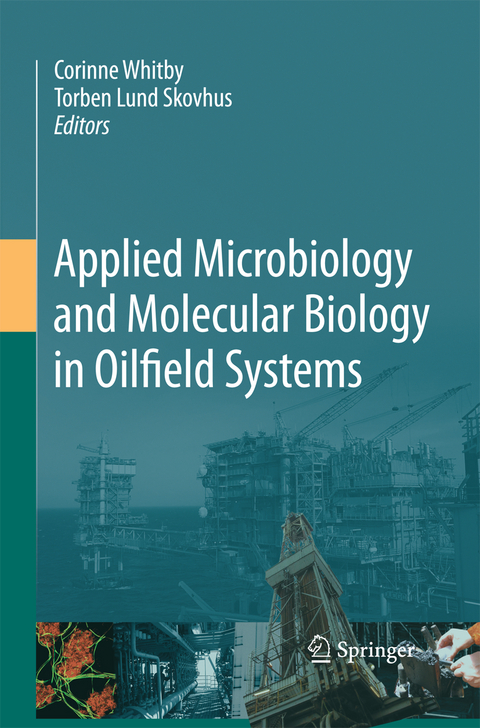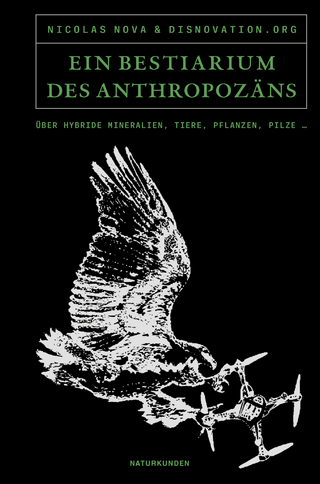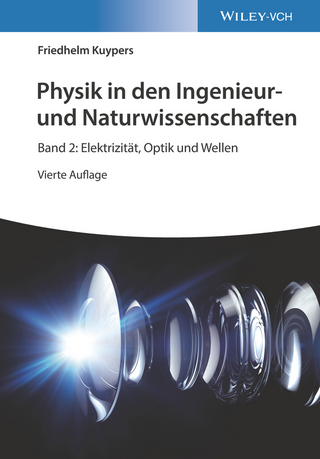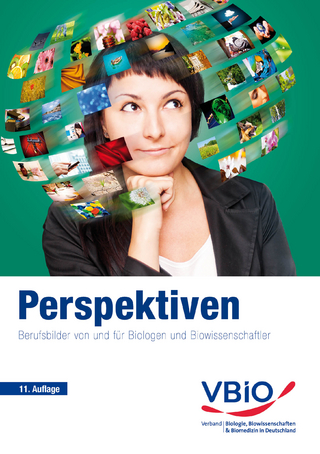
Applied Microbiology and Molecular Biology in Oilfield Systems
Springer (Verlag)
978-94-007-8980-7 (ISBN)
Dr Corinne Whitby is a lecturer in Environmental Microbiology at the University of Essex, UK. She has over 10 years primary research experience in molecular microbial ecology. Her research is focused upon the application of Molecular Microbiological Methods (MMM) to analyze the biodegradation of hydrocarbons (e.g. naphthenic acids and polyaromatic hydrocarbons) and how nanoparticles affect hydrocarbon biodegradation. Her research is also involved in analyzing the biogeochemical cycling of nutrients in marine, freshwater and terrestrial systems. She was the original founders of ISMOS1 (with Dr Skovhus) and co-organised ISMOS2, Denmark, 2009 and the forthcoming ISMOS3, Calgary, 2011. Dr. Torben Lund Skovhus graduated from the University of Aarhus, Denmark, in 2002 with a Master's degree in Biology. In 2005 he finished his PhD from Department of Microbiology, University of Aarhus. In 2005 Torben was employed at Danish Technological Institute (DTI) in the Centre for Chemistry and Water Technology, where he got responsibility for the consultancy activities for the oil and gas industry, molecular detection of troublesome microbes in process and domestic waters and development and introduction of new molecular monitoring tools for the industries. Torben was Head of the DTI Microbiology Laboratories from 2006 to 2008 while he was building up several consultancy activities with the oil and gas industry. He is now in a position as Team Leader in DTI Oil & Gas Center. The team counts dedicated chemists, microbiologists, engineers, consultants. All with a long history in general troubleshooting of technical industrial systems for microbiologically caused problems and with a particular focus on oil, gas and petroleum systems.
PART I: Introduction, Sampling and Procedures. PART II: Application of Molecular Microbial Methods to the Oil Industry. PART III: Problems Caused by Microbes to the Oil Industry and Treatment Strategies. PART IV: How Specific Microbial Communities Benefit the Oil Industry. PART V: Fuel for the Future. APPENDIX I.
| Erscheint lt. Verlag | 23.11.2014 |
|---|---|
| Zusatzinfo | XVI, 279 p. |
| Verlagsort | Dordrecht |
| Sprache | englisch |
| Maße | 155 x 235 mm |
| Themenwelt | Naturwissenschaften ► Biologie ► Allgemeines / Lexika |
| Naturwissenschaften ► Biologie ► Genetik / Molekularbiologie | |
| Naturwissenschaften ► Biologie ► Mikrobiologie / Immunologie | |
| Naturwissenschaften ► Biologie ► Ökologie / Naturschutz | |
| Technik ► Elektrotechnik / Energietechnik | |
| Technik ► Umwelttechnik / Biotechnologie | |
| Schlagworte | Biofuels • Microbially Enhanced Oil Recovery (MEOR) • Microbiologically Influenced Corrosion (MIC) • Molecular microbiological methods • Oil field microbiology |
| ISBN-10 | 94-007-8980-7 / 9400789807 |
| ISBN-13 | 978-94-007-8980-7 / 9789400789807 |
| Zustand | Neuware |
| Haben Sie eine Frage zum Produkt? |
aus dem Bereich


